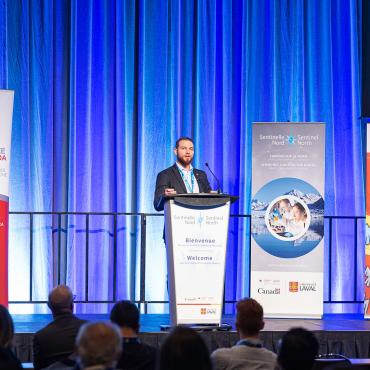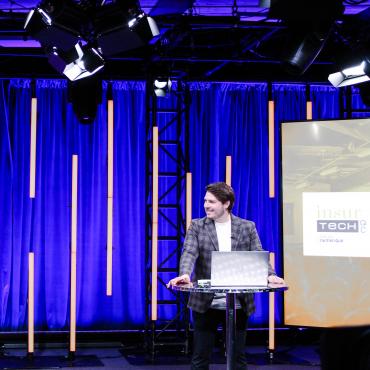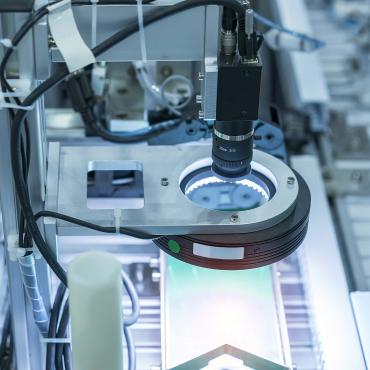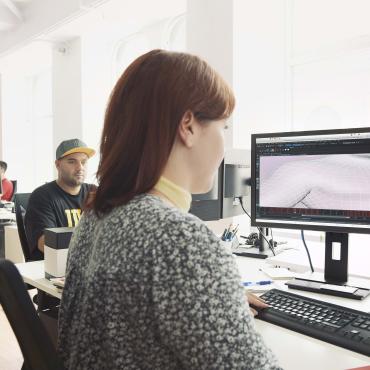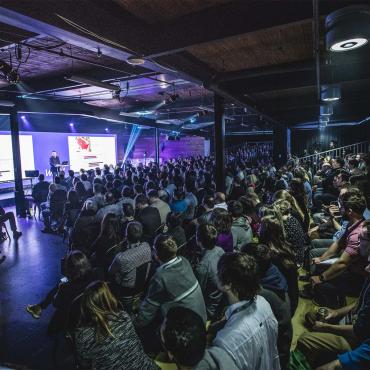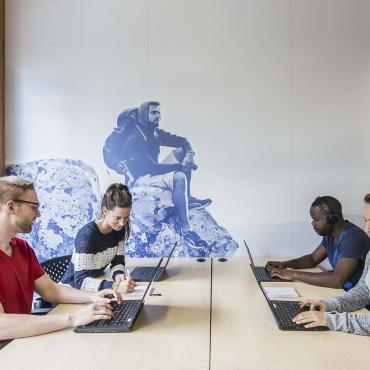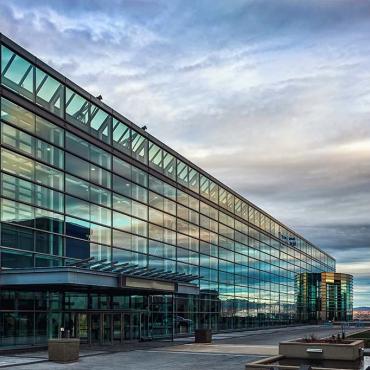Québec City: Championing artificial intelligence on the world’s stage
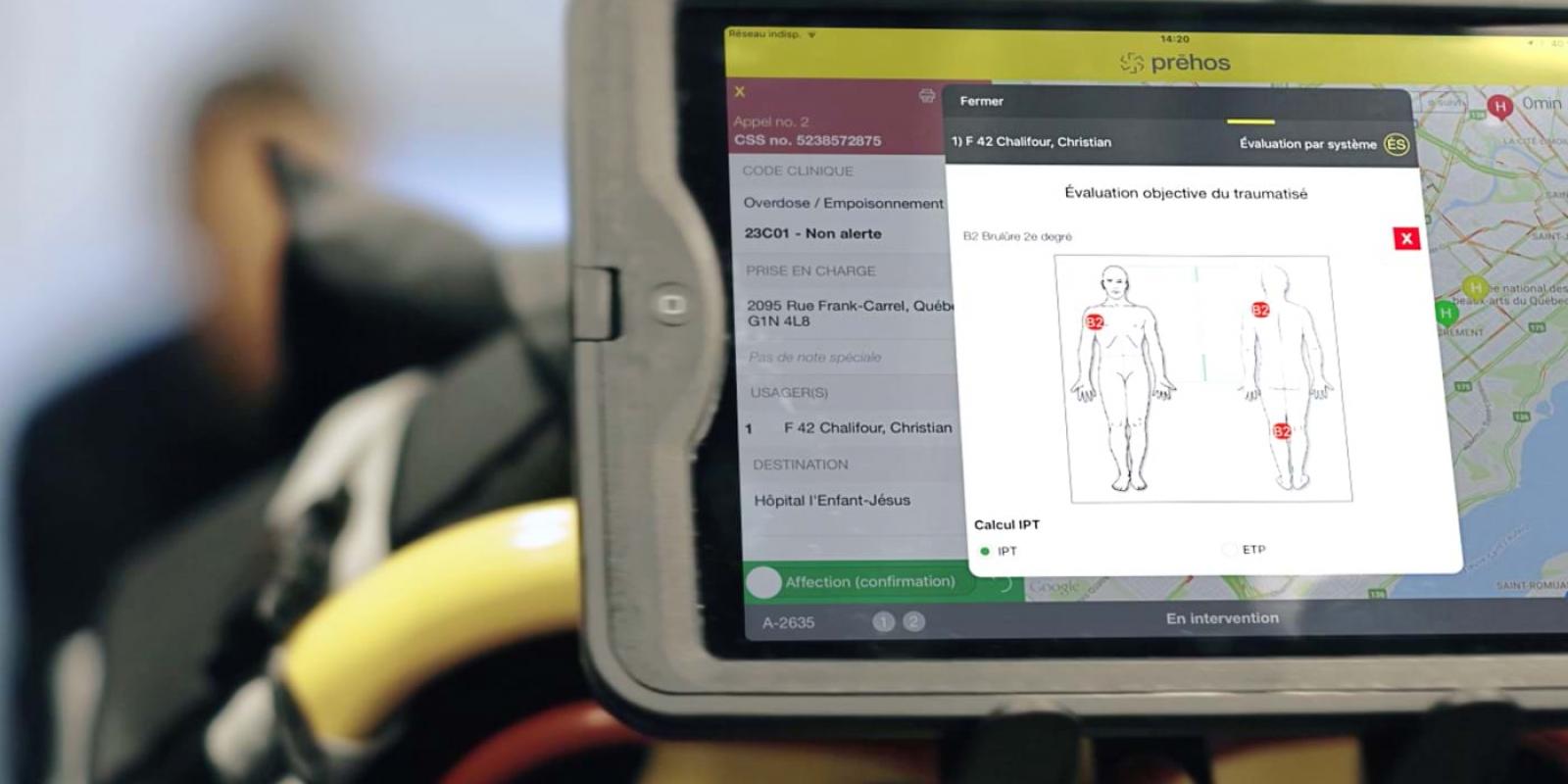
According to many economists and tech giants, the world’s most valuable resource is no longer oil, but data.
And due to major innovations in the Internet of Things (IoT), which allows connected devices to generate and share data, artificial intelligence (AI), or the ability for machines to learn from experience and carry out human-like tasks, is set to drive the world’s digital transformation.
And that means big business for big data. Forrester Research estimates that the artificial intelligence market will be valued at $1.2 trillion by 2020, while the International Data Corporation (IDC) forecasts that spending on artificial intelligence and machine learning will spike from $12 billion in 2017 to $57.6 billion by 2021.
Businesses and countries around the world are gearing up to take advantage of the tremendous opportunities AI can afford. And Québec City is poised to carve an enviable spot in this booming sector. Thanks to the presence of other cutting-edge sectors of expertise, such as optics-photonics, robotics, etc., the research and development of solutions can be based on a massive quantity of data from the real world—both physical and tangible—not just virtual worlds.
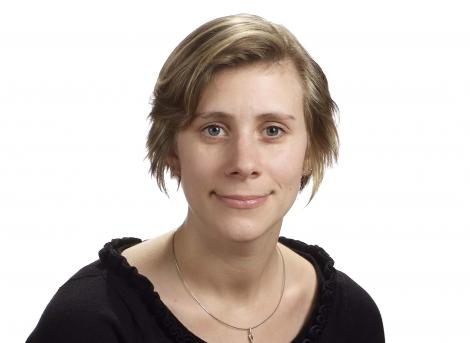
This is a strength that Québec does and must capitalize on,” explained Ms. Alexandra Masson, Director of Innovation in the Business Growth Support team at Québec International, a leading economic development agency that contributes to Québec City’s economic development and international recognition.
According to Ms. Masson, there are several reasons for Québec City’s world-renowned AI standing.
For one, Québec City to many researchers in various faculties at the Université Laval and the 15 research centres dedicated to AI. Research is conducted in a variety of different fields, including computer programming, optics-photonics, manufacturing, sensor technology, food production and health.
In addition, Université Laval is massively investing in developing high-level programs and internships to attract and train next-generation data scientists. “Québec City hopes to entice the AI experts of tomorrow to both study and work in the region,” said Ms. Masson.
Another reason why Québec City’s AI industry is flourishing is because there is a long-standing tradition of close collaboration between research centres, the business sector and other actors in an array of fields. This favours pluridisciplinary approaches.
Our region is brimming not only with fundamental research but also in applied research.
Thanks to this type of collaboration and the very nature of artificial intelligence, applications get into the hands of businesses and organizations that commercialize or use them more quickly. There are many sectors in which the Québec City region stands out:
- Health and precision medicine
- Smart cities
- Insurance and financial services
- Industry 4.0
- Sustainable transportation
- Natural resources
This ability to quickly turn ideas into viable market solutions is definitely Québec City’s forte. In fact, this is not a first for the region; Québec City has already adopted this approach in other industries. For example, the fine research and teaching expertise in the health sciences and optics-photonics have paved the way for great international success stories.
“Currently, there are over 60 businesses that use artificial intelligence in one shape or form in their products,” mentioned Ms. Masson.
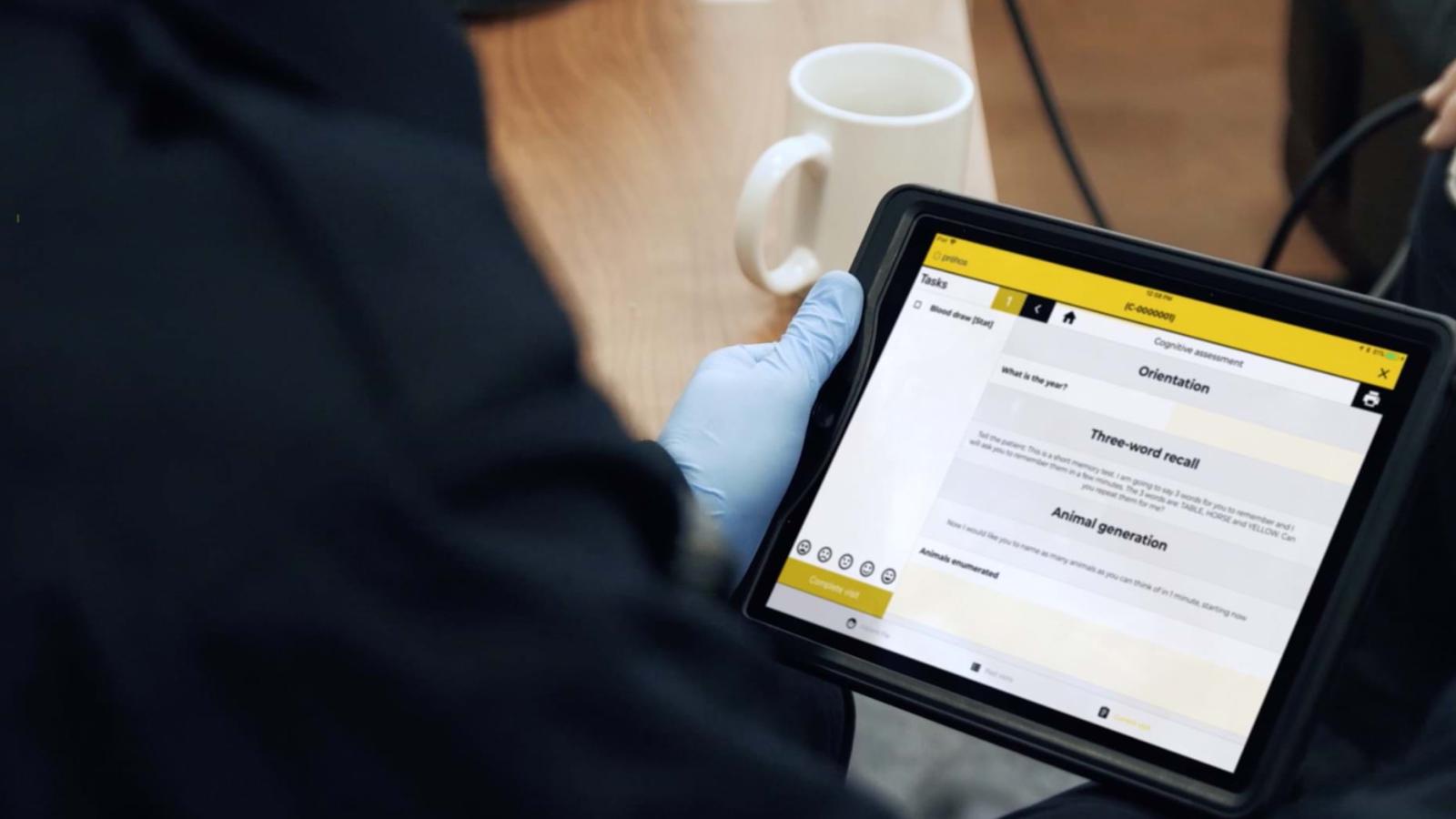
Here are just some examples of how artificial intelligence is part of Québec City’s economic fabric:
Sensors
Québec City’s expertise in sensors have allowed several new businesses to be founded—all of which are experiencing unprecedented growth as they take advantage of artificial intelligence. LeddarTech, Optel Group and Nyx Hemera are some key businesses in this field.
Automation
The region also has a strong presence with respect to automation, due to its analysis expertise and the intensity in which IT development takes place. KOREM, Intelli3, RealTraffic and Waste Robotics all help their respective markets to improve productivity with the analysis and automation of processes.
Learning
Learning at the heart of processes is the key to the performance of all of these models, which are often custom-developed for specific applications in industries or fields of work. These experts in applied machine learning are also very present in the Québec City region, including COVEO, AIWorx, Vooban, E.Machine Learning, Arcbees, Ingeno and UmanX.

Québec City’s regional research centres, including the INO, also incubate many up-and-coming companies that are utilizing AI in an array of new solutions for businesses and consumers alike.
And developers, such as Cortex Media, VOOBAN and Arcbees, design AI-centric software and applications for many different sectors, whether it be in retail to analyze consumer behaviour or in the manufacturing industry for predictive maintenance. Ms. Masson, along with Mr. François Laviolette, Professor at Université Laval and Director of the Big Data Research Centre, agree that Québec City is a major centre for AI.
“The city is burgeoning with joint projects between educational institutions, research centres, levels of government and private companies,” Mr. Laviolette. “This transdisciplinary approach is the key to Québec City’s role in AI."
For example, Préhos is an innovative company that offers a cutting-edge technological solution in the field of prehospital emergency care, community paramedicine and the planning and optimization of patient transportation.
Québec City’s regional research centres, including the INO, also incubate many up-and-coming companies that are utilizing AI in an array of new solutions for businesses and consumers alike.
For example, the Consortium de recherche en ingénierie des systems industriels 4.0, is an initiative that brings together organizations, research centres, businesses and Université Laval to help manufacturers implement best practices and the latest technologies in industrial automation.
The Joint Research Unit in Urban Sciences (UMR-su), for its part, is a meeting of the minds in the fields of social science, applied science and geomatics to develop the smart and sustainable cities for tomorrow. By leveraging big data and analytics, the UMR-su hopes to evolve many facets of a city’s workings, including urban security, transportation and mobility, and water and the environment.
Pulsar is a collaborative platform, developed in Québec City by Université Laval and based on a vision by the Alliance santé Québec, which involves researchers, clinicians, policy makers and citizens working on joint research projects that use big data, to sustainably improving the health trajectories of individuals and communities for the future.
SCALE.AI, an AI supercluster co-presided by entrepreneur Louis Roy, President of Québec-based Optel Group is a consortium managed by the industry. Its goal is to develop a new worldwide platform in supply change management and bolster Canada’s leadership in AI. SCALE.AI also aims to accelerate AI’s adoption by key enabling technology sectors thanks to joint and forward-thinking projects.
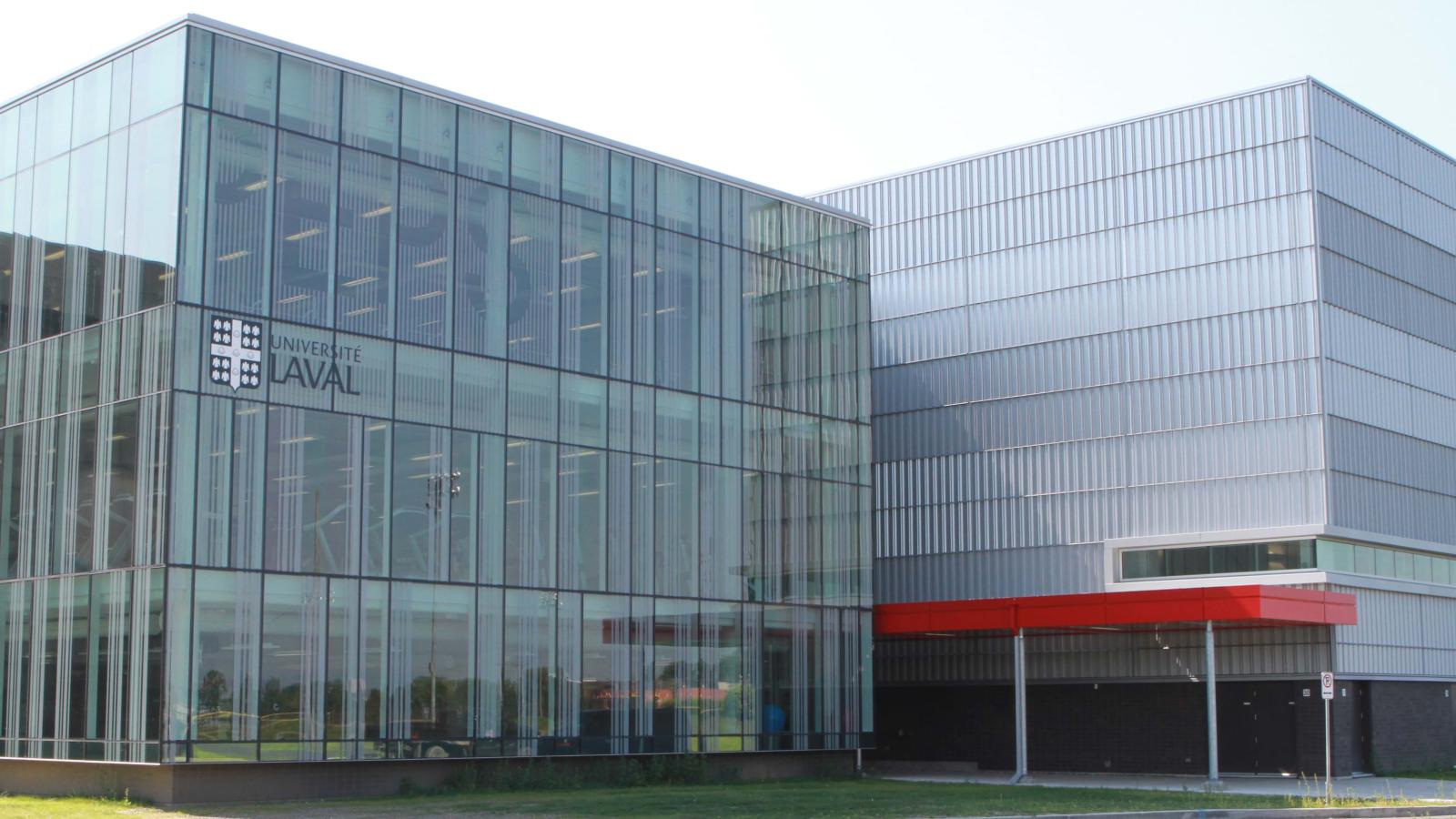
The Institut d’éthique appliqué (IDÉA) at the Université Laval is playing a crucial part in examining and providing recommendations for the ethics, social acceptability, legal parameters and corporate responsibility surrounding AI.
“AI can be a powerful tool to help humanity,” Mr. Laviolette explained. “However, it must be developed and used in a responsible and humane manner. We want to prevent, as much as possible, human rights abuses and systemic failures. Laws and protocols will need to be established so that people and businesses to not use AI technology for malicious purposes.”
Indeed, Québec City’s AI boom shows no signs of slowing down any time soon. As part of Semaine numérique de Québec, the city’s major digital technology event, the first-ever Rendez-vous IA Québec will take place on April 9, 2018 as a part of the Semaine numérique de Québec. During this day-long conference on artificial intelligence, many internationally renowned AI experts, including Mr. Laviolette and Yoshua Bengio, Full Professor at the Université de Montréal’s Department of Computer Science and Operations Research, head of the Montreal Institute for Learning Algorithms (MILA), CIFAR Program co-director of the CIFAR program on Learning in Machines and Brains, and Canada Research Chair in Statistical Learning Algorithms.
“AI is the wave of the future,” said Ms. Masson. “And with Québec City’s transversal expertise in AI and its role in vertical markets, the region plans to be at the leading edge for years to come.”


